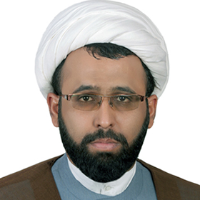Originology in the View of Aḥmad ibn Muḥammad ibn Īsā al-Ash’arī
Aḥmad ibn Muḥammad ibn Īsā al-Ash’arī was a companion of Imām al-Riḍā, Imām al-Jawād, and Imām al-Hādī, and a great Shiite transmitter of hadiths in the ninth century. His reliability is a matter of consensus among all Shiite jurists and scholars of rijal (biography of hadith transmitters). He transmitted different hadiths concerning originology (study of the originator or creator of the world). In this research, we have sought to study these hadiths, and thus, infer his theological views in originology. In this paper, we show that the world is incipient, rather than eternal, and it was created by God. Humans innately know God, and have admitted His Lordship in the World of Dharr. We enumerate some of God’s positive and negative attributes, and make explicit that the only creator, provider, lord, owner, agent, and guide, and there is nothing like God neither in essence nor in attributes. God has restricted such beautiful names to Himself. Humans do have free will, but they do not have an independent and absolute power or ability. That is, their power lies within the limits of God’s will and predestinations.
-
A Critique of al-ʿUthaymīn’s Approach to Monotheism Based on the Monotheistic Views of ʿAllāma Ṭabāṭabāʾī
Zahrāʾ Sargazī, Ibrāhīm Qāsimī *
Biannual journal of Theology journal, -
A comparative look at Sama Muti from the point of view of Ibn Taymiyyah with the point of view of Wahhabism and the explanation of its consensus works
Reza Mahmodi, Ebrahim Ghasemi *, Mahdi Norozi
Iranian Journal of Political Sociology,



